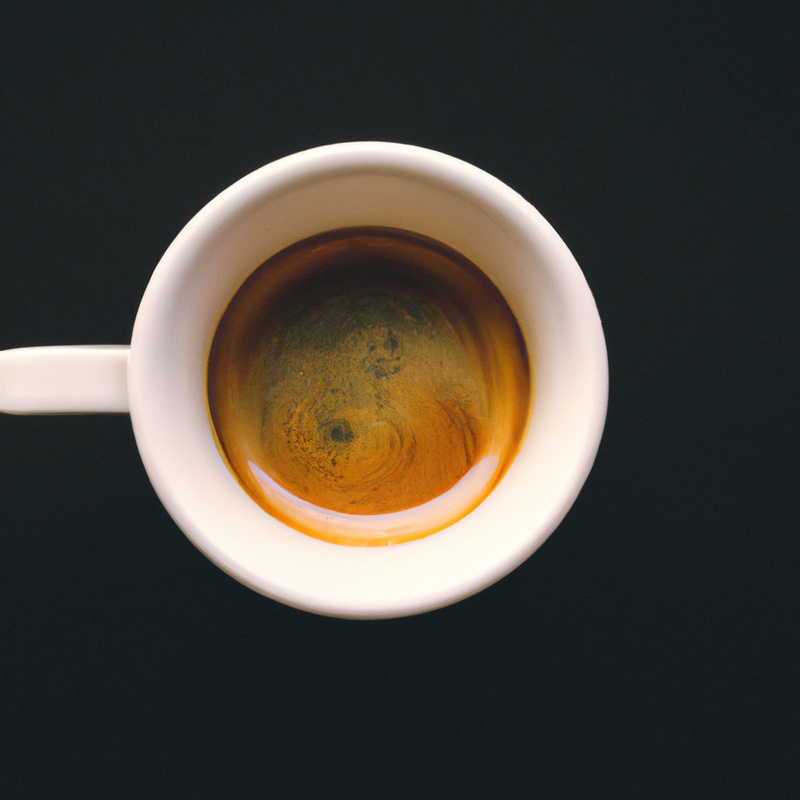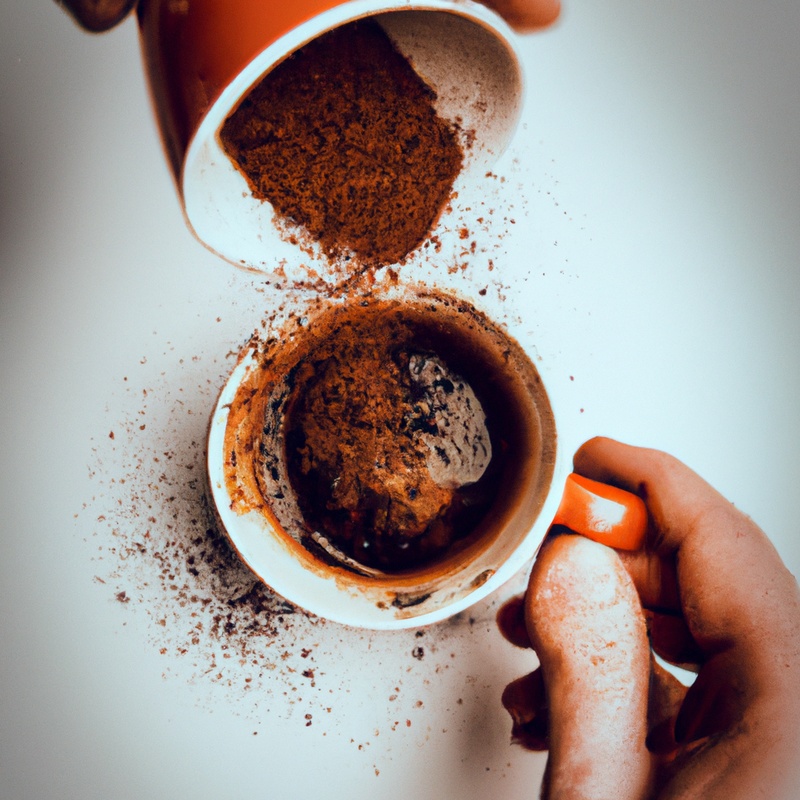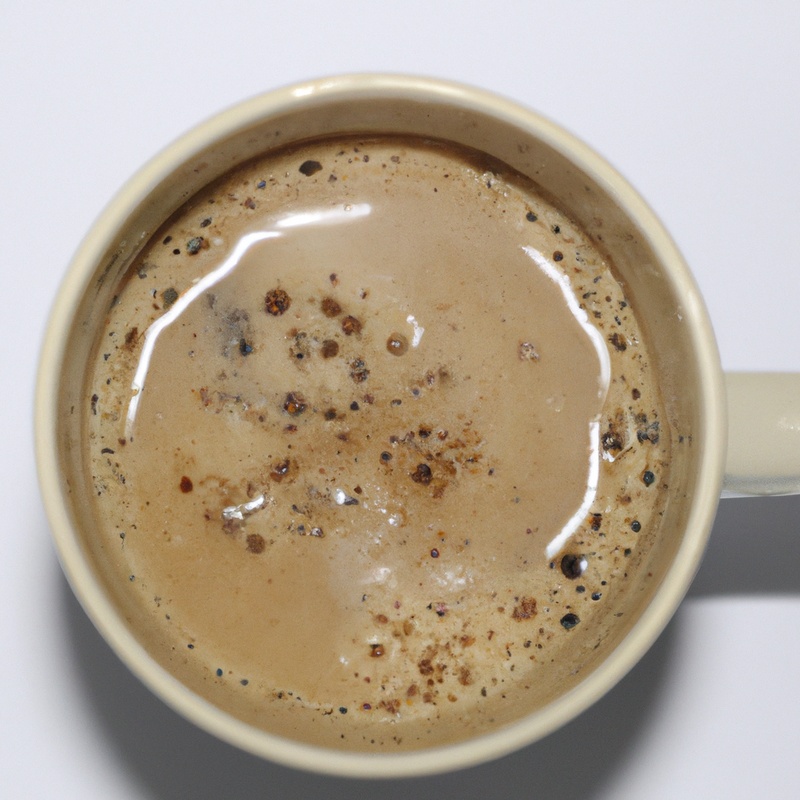Key Takeaways:
- Cold brew coffee can go bad due to the growth of mold or bacteria.
- Proper storage and refrigeration can help extend the shelf life of cold brew coffee.
- The taste and quality of cold brew coffee may deteriorate after a certain period of time.
- Pay attention to any changes in color, odor, or taste to determine if cold brew coffee has gone bad.
Are you a fan of cold brew coffee? It’s smooth, rich, and refreshing – the perfect pick-me-up on a hot summer day.
But here’s the million-dollar question: does cold brew coffee go bad?
As an expert in all things caffeine-related, I’m here to give you the lowdown. In this article, we’ll dive into the definition of cold brew coffee and how it differs from regular coffee.
We’ll also explore the shelf life of cold brew coffee and the factors that can affect it.
Plus, I’ll share some telltale signs that your cold brew has gone bad and give you tips on how to properly store it. So grab your favorite mug and let’s get brewing!
| Does cold brew coffee go bad? | |
| Definition | Coffee brewed with cold water instead of hot water. |
| Shelf Life | Up to 14 days when refrigerated. |
| Factors | Exposure to air, temperature, and quality of water used. |
| Safety | Generally safe to consume, but quality may degrade after shelf life. |
| Taste | Mild and smooth with lower acidity compared to hot brewed coffee. |
| Benefits | Less acidic, potentially less bitter, and higher caffeine content. |
| Drawbacks | Longer preparation time and potential risk of bacteria growth. |
What is Cold Brew Coffee?
Cold brew coffee is a type of coffee that is made by steeping ground coffee beans in cold water for an extended period of time, resulting in a smooth and less acidic flavor profile. It is different from regular coffee because it is not brewed with hot water.
Definition of Cold Brew Coffee
Cold brew coffee is a type of coffee that is made by steeping coarsely ground coffee beans in cold or room temperature water for an extended period of time, usually 12-24 hours. Unlike traditional hot brewed coffee, cold brew is not prepared with hot water, which results in a smoother and less acidic flavor profile.
The slow extraction process highlights the natural flavors of the coffee beans and produces a refreshingly bold and concentrated beverage.
Cold brew can be enjoyed on its own, over ice, or mixed with milk or other ingredients for a variety of cold coffee drinks.

Cold Brew Coffee vs. Regular Coffee
When comparing cold brew coffee to regular coffee, there are a few key differences to consider.
- Taste: Cold brew coffee has a smoother and less acidic taste compared to regular coffee, making it a preferred choice for those who find traditional coffee too strong.
- Brewing method: Cold brew coffee is made by steeping coffee grounds in cold water for an extended period of time, typically 12-24 hours. Regular coffee is brewed with hot water and usually takes just a few minutes.
- Caffeine content: Despite popular belief, cold brew coffee typically contains slightly more caffeine than regular coffee due to the longer steeping process.
- Serving options: Cold brew coffee is often served over ice or mixed with milk, creating refreshing summer beverages like iced lattes and cold brews. Regular coffee is usually enjoyed hot and can be customized with various syrups and toppings.
Ultimately, the choice between cold brew and regular coffee comes down to personal preference and the desired flavor profile.

How Long Does Cold Brew Coffee Last?
Cold brew coffee can last up to two weeks when stored properly.
Shelf Life of Cold Brew Coffee
The shelf life of cold brew coffee depends on how it is stored.
When kept in the refrigerator, cold brew coffee can last up to two weeks.
However, it is best to consume it within the first week for optimal freshness and taste.
Remember to store it in an airtight container to prevent any absorption of odors or flavors from the fridge.
If you want to extend the shelf life, you can also freeze cold brew coffee for up to three months.
Just make sure to thaw it in the refrigerator before consuming.
Factors that Affect the Shelf Life of Cold Brew Coffee
The factors that affect the shelf life of cold brew coffee include:
- Storage: Storing cold brew coffee in an airtight container in the refrigerator can extend its freshness.
- Quality of water: Using filtered water can help prevent any impurities that could lead to the coffee spoiling faster.
- Brewing process: The duration and temperature of the brewing process can impact the coffee’s shelf life.
- Additives: Adding milk, cream, or sweeteners can shorten the shelf life of cold brew coffee.
- Contamination: Keeping the brewing and serving equipment clean can prevent any bacterial growth that may spoil the coffee.
These factors should be considered to ensure the best quality and longest shelf life for your cold brew coffee.
Signs that Cold Brew Coffee Has Gone Bad
Signs that Cold Brew Coffee Has Gone Bad: Look out for visual changes or a sour smell and taste.
Visual Changes in Cold Brew Coffee
Visual changes in cold brew coffee can indicate that it has gone bad. Here are some signs to look out for:
- Mold or floating particles: If you see any mold growth or small floating particles in your cold brew coffee, it’s a clear sign that it has spoiled and should be discarded.
- Cloudiness or sediment: Fresh cold brew coffee is usually clear or slightly translucent. If you notice cloudiness or sediment at the bottom of your container, it may be a sign of bacterial growth or degradation.
- Foul odor: Cold brew coffee should have a pleasant aroma. If you detect a foul or sour odor, it’s likely that the coffee has gone bad.
It’s important to note that these visual changes may be more noticeable in homemade cold brew coffee as compared to store-bought options, which is why it’s essential to monitor the appearance of your cold brew to ensure its freshness and quality.
Smell and Taste Changes in Cold Brew Coffee
In terms of smell and taste changes, cold brew coffee can undergo some noticeable differences as it ages. It may develop a more acidic aroma and flavor, losing some of its smoothness and sweetness.
Additionally, stale or bad cold brew can have a sour or off-putting taste.
To ensure the freshest and best-tasting cold brew, it’s important to consume it within a few days of brewing and store it properly in the refrigerator. If you notice any significant changes in smell or taste, it may be a sign that the cold brew has gone bad.

How to Properly Store Cold Brew Coffee
To properly store cold brew coffee, use airtight containers and keep it refrigerated.
Best Containers to Store Cold Brew Coffee
The best containers for storing cold brew coffee are airtight glass jars or bottles.
Glass helps maintain the flavor and freshness of the coffee without any additional taste or smell.
Airtight seals prevent the coffee from being exposed to air, which can degrade its quality.
Mason jars or swing-top bottles are great options.
Ensure the container is thoroughly cleaned and dried before storing the cold brew.
Additionally, avoid using plastic containers as they may absorb odors and affect the taste of the coffee.
Ideal Storage Conditions for Cold Brew Coffee
The ideal storage conditions for cold brew coffee are in the refrigerator, in an airtight container.
This helps to maintain its freshness and prevent any contaminants from entering.
Remember to keep it away from strong odors, as coffee can absorb them easily.
Also, avoid exposing cold brew coffee to direct sunlight or heat, as this can affect its flavor and quality.
Following these simple storage tips will help you enjoy your cold brew coffee at its best.
Frequently Asked Questions
Can I drink cold brew coffee after it has expired?
Can I drink cold brew coffee after it has expired? It is not recommended to drink cold brew coffee after it has expired.
Expired coffee can develop harmful bacteria and can taste stale or bitter.
Pay attention to the expiration date on the packaging and consume it within the recommended time frame. If unsure, it’s best to err on the side of caution and prepare a fresh batch.
Enjoy your coffee while it’s still at its best!
Can I consume cold brew coffee that has been stored for a long time?
Yes, you can consume cold brew coffee that has been stored for a long time.
Cold brew coffee has a longer shelf life compared to regular hot brewed coffee because it is brewed using cold or room temperature water, which slows down the oxidation process.
However, the taste and quality may degrade over time.
To ensure the best taste, it’s recommended to consume cold brew coffee within 1-2 weeks of brewing and store it in a tightly sealed container in the refrigerator.
Can I use spoiled cold brew coffee for cooking?
Yes, you can use spoiled cold brew coffee for cooking. The flavors may be slightly altered, but it can still add a unique taste to certain dishes.
Consider using it in recipes that call for coffee as an ingredient, such as desserts or savory marinades.
However, if the cold brew coffee has mold or a strong off smell, it is best to discard it to avoid food poisoning. Always use your judgment and trust your senses when using spoiled ingredients in cooking.
Final Verdict
Cold brew coffee does have a shelf life and can go bad over time. The shelf life of cold brew coffee can range from 7-14 days when stored properly.
Factors such as temperature, light exposure, and the presence of contaminants can affect the freshness of cold brew coffee.
Visual changes, off-putting smells, and taste changes are indicators that cold brew coffee has gone bad. To prolong the shelf life of cold brew coffee, it is important to store it in airtight containers in the refrigerator, away from light and other strong odors.
Overall, it is best to consume cold brew coffee within the recommended shelf life for the best taste and quality.
